Evolution and Resilience: Islam in the 21st Century
In the 21st century, the world's landscape has undergone profound transformations from the era when the Prophet ﷺ introduced the foundational Islamic laws (Sharī’a) in the 6th century. This shift has presented contemporary Muslims with a pressing dilemma: the choice between adherence to conservative interpretations of Islamic laws or embracing a more liberal approach aligned with modern societal norms. The Islamic faith's inclination toward traditional values often sparks debate within Muslim communities about reconciling ancient principles with the evolving needs of a modern society.
Islam, deeply rooted in the Quranic scriptures and the teachings of the Prophet Muhammad ﷺ, inherently values adherence to its foundational principles. This emphasis on tradition and continuity fosters a conservative approach, prioritising the preservation of Islamic laws established in the past. The Quran and Ḥadīth serve as guiding lights, directing Muslims to maintain fidelity to these teachings while grappling with the evolving dynamics of contemporary society. This commitment to the core tenets of Islam provides stability and a moral compass, yet it also sparks introspection within Muslim communities. They face the challenge of harmonizing age-old wisdom with the diverse and dynamic realities of the modern world, seeking ways to remain true to Islamic values while addressing the needs and complexities of today's global community.
The Double-Edged Sword of Social Media
It is quite apparent that the vast availability of social media and electronic devices caused the propagation of the religion much wider and quite accessible. This also resulted in the spread of Islamic knowledge among uninformed Muslims who lack basic understanding of the religion. Additionally, it made Islam more accessible in materially developed countries like North America and Western nations. According to some recent studies, the number of believers in Europe has steeply increased from 29.6 million[i] to 49.2 million in a short period of time, from 1990 to 2020.[ii]
Conversely, while social media has unfortunately become a platform for Islamophobic rhetoric and anti-Islamic sentiments, it's important to note the profound impact of Islam's values on the world. The dissemination of Islamic principles, teachings of compassion, social justice, and spirituality through various online platforms has led to a significant number of conversions to Islam. These values, when shared and understood, have inspired individuals globally, resonating deeply with their beliefs and leading them to embrace Islam. Despite the negativity and mocking directed at Islamic rituals on social media, the inherent strength and beauty of Islamic values have continued to attract diverse individuals. Amid challenges and misconceptions, the positive influence of Islam's core principles has played a pivotal role in positively shaping perceptions and guiding individuals towards its teachings.
Portrayal of Islam in the Western Media
While many Europeans and Americans began embracing Islam, journalists from the West always showed a trace of bitterness about this religion. When a Muslim country from the Middle East, Qatar, was obliged to host the FIFA World Cup for the year 2022, one of the most trusted and prominent news providers, the BBC, published an article, which says: ‘In February 2021, the Guardian said 6,500 migrant workers from India, Pakistan, Nepal, Bangladesh and Sri Lanka had died in Qatar since it won its World Cup bid. The number is based on figures provided by the countries' embassies in Qatar’, ‘BBC Arabic has also gathered evidence which suggests Qatar's government has under-reported deaths amongst foreign labourers.’[iii]
There have been instances where certain individuals have unfairly labelled Muslims worldwide as terrorists and extremists, especially following the tragic events of the 9/11 attacks. This misrepresentation reflects a lack of understanding and unfairly paints an entire community in a negative light. It's important to address these misconceptions and not generalise an entire faith based on the actions of a few. In recent times, some prophecies have surfaced suggesting a transformation in Europe's demographic landscape towards a larger Muslim population by the end of the century. This prediction has caused concern among European Muslims, who, at times, have felt compelled to conceal their identities due to fears of not being accepted in their own nations. However, it's crucial to note that these predictions should not be a source of division or fear, but rather an opportunity for mutual understanding and harmony among diverse communities.
In the past, there have been regrettable incidents where individuals, such as Abu Hamza al-Masri, made inflammatory remarks and incited hate, depicting a lack of tolerance and understanding. It's important to emphasize that such views and actions do not align with the core teachings of Islam, which advocate for peace, compassion, and respect for all. Acts of violence and hostility are condemned in Islam, and they do not represent the beliefs and values of the vast majority of Muslims. The concerns and fears that both Muslims and non-Muslims in Europe have about potential terrorist attacks are valid, but it's essential to address these concerns through dialogue, cooperation, and mutual respect among all communities.[iv] Encouraging understanding, compassion, and unity based on shared values can help foster a more inclusive and peaceful society for everyone.
Feminist Perspectives on Islamic Values
The relationship between feminism and Islam has often been misunderstood, with some feminists perceiving Islam as contradictory to the principles of freedom and equality advocated by the movement. There's a misconception that Islam imposes the hijab and confines women to domestic roles, which has led to friction between feminist ideologies and Islamic teachings. Feminists emphasize that a woman's choice of clothing is a fundamental aspect of her freedom, contrasting with the perception that Islam imposes the hijab. However, Islam views modest dressing, including the hijab, as a means of preserving dignity and respecting one's self, rather than an imposition. It's crucial to note that Islam doesn't restrict women from engaging with the world but emphasises safety and dignity in their interactions.
Furthermore, the misunderstanding arises when feminists interpret Islam's suggestion for women to focus on the household as a restriction rather than a recommendation prioritising safety and care. Islam values the roles of women as caregivers but doesn't confine them solely to domestic spheres. It encourages education and recognizes women's rights—teachings that were revolutionary during the time of the Prophet Muhammad ﷺ.
In reality, Islam's inception saw a significant elevation of women's status in a society where they were previously marginalised. The Prophet Muhammad ﷺ advocated for women's rights, emphasizing respect, education, and the importance of mothers. His teachings promoted women's dignity, granting them rights and status previously denied. Islam championed women's education as a birthright and elevated their societal standing, aiming for their empowerment rather than repression. Islam's teachings align with feminist values of equality and empowerment, emphasizing the importance of education, dignity, and respect for women's roles within society. The alleged restrictions are often misconceptions that overlook Islam's efforts to elevate women's status and ensure their rights and dignity.
Islam’s Future Path in a Diverse World
It is barely possible to determine the future of Islam as a whole, as the conditions of Muslims vary in different countries. The best we can do is make assumptions for each country according to its response to Islam. Western countries, as well as North America, are getting used to Islam from time to time. Muslims are having peaceful personal lives in such countries, except that the religion is being insulted and offended by some modern institutions, like LGBTQ+ and feminists, as mentioned above. To the most, this is due to their prejudice and lack of proper knowledge about Islam and its values.
Speaking of India, Muslims have already had unity in the southern parts, including Kerala, for over a century. However, the northern parts of India hardly consist of any Muslims with fundamental religious knowledge.In the northern regions of India, there exists a diverse array of communities, each contributing unique perspectives and knowledge to the cultural fabric. However, in certain areas, the prevalence of in-depth religious knowledge within the Muslim community might vary. Some Muslim organisations from the south, such as Samastha and Hadiya, are trying to unite Muslims under a single umbrella with every effort to make the conditions of Muslims better and stable in the country. Some Arab countries are changing their traditions and cultures to follow the modern community. The Kingdom of Saudi Arabia, home to two of the holiest places in Islam, now consists of bars in an effort to make it a tourist place. Palestine is enduring frequent strikes from the Jews of Israel, making it an unsafe place for its Muslim inhabitants.
To wrap up, Islam has changed a lot in the 21st century as per the modern community and the current circumstances, not in its basic practices and rituals. However, the growth of Islam is very steady in the modern world. Some people embrace it, some tolerate it, and others wholly reject it due to their ignorance. It's essential to share the unique perspectives of Islam and highlight the depth and righteousness of its teachings in comparison to various other disciplines. This understanding can help foster mutual respect and harmony among different communities.
Endnotes
[i] “Region: Europe | Pew Research Centre,” Pew Research Centre, January 27, 2011, https://www.pewresearch.org/religion/2011/01/27/future-of-the-global-muslim-population-regional-europe/.
[ii] Houssein Kettani, “Muslim Population in Europe: 1950 -2020,” ResearchGate, January 2010, https://www.researchgate.net/publication/241278288_Muslim_Population_in_Europe_1950_-_2020.
[iii] “World Cup 2022: How has Qatar treated foreign workers? - BBC News,” BBC News, November 9, 2022, https://www.bbc.com/news/world-60867042.
[iv] John Esposito, The Future of Islam (New York: Oxford University Press, 2013), 29.
About the author
Sajwin Shakkeer Bin Jaffar is a senior secondary student at Darul Falah Islamic Academy, Taliparamba, affiliated to Darul Huda Islamic University.
Disclaimer
The views expressed in this article are the author’s own and do not necessarily mirror Islamonweb’s editorial stance.
3 Comments
-

This essay effectively explores how Islam has adapted and remained strong in the 21st century. It highlights how Muslim communities face modern challenges while staying true to core beliefs. The discussion on Islam’s role in social issues and diverse interpretations is particularly insightful.
-

This essay effectively explores how Islam has adapted and remained strong in the 21st century. It highlights how Muslim communities face modern challenges while staying true to core beliefs. The discussion on Islam’s role in social issues and diverse interpretations is particularly insightful.
-

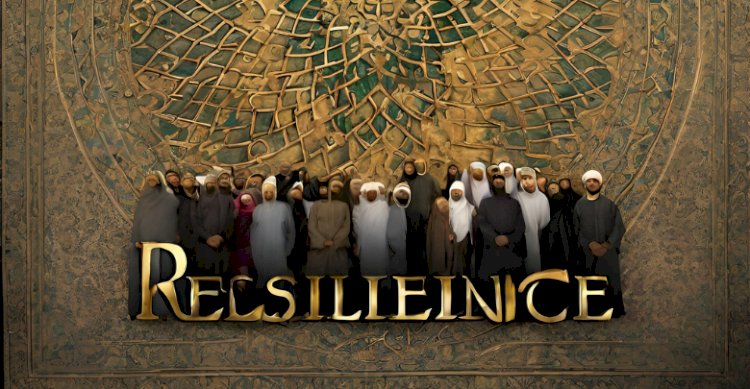


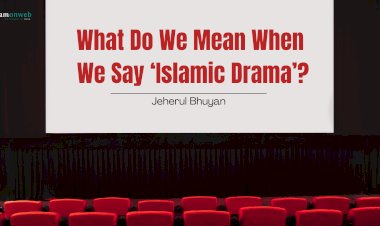

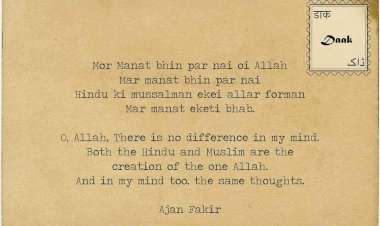
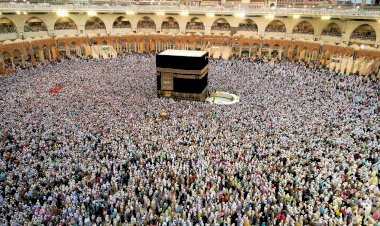

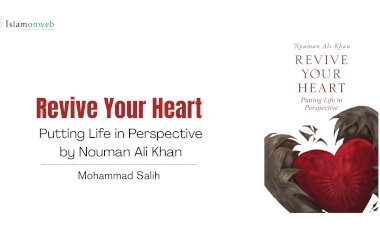














Leave A Comment